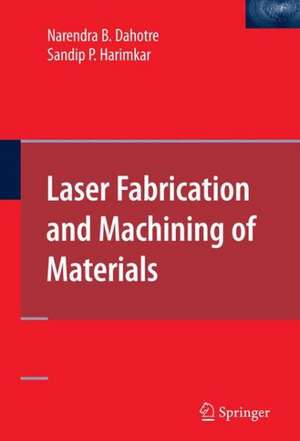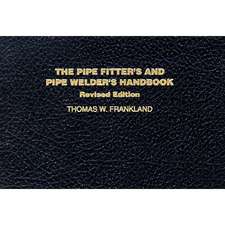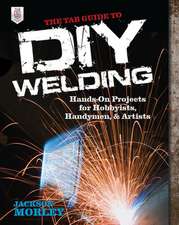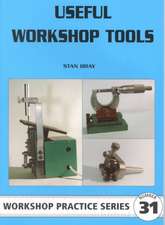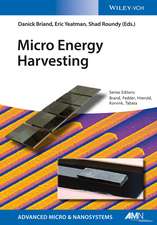Laser Fabrication and Machining of Materials
Autor Narendra B. Dahotre, Sandip Harimkaren Limba Engleză Paperback – 3 noi 2014
| Toate formatele și edițiile | Preț | Express |
|---|---|---|
| Paperback (1) | 957.62 lei 6-8 săpt. | |
| Springer Us – 3 noi 2014 | 957.62 lei 6-8 săpt. | |
| Hardback (1) | 961.86 lei 6-8 săpt. | |
| Springer Us – 25 noi 2007 | 961.86 lei 6-8 săpt. |
Preț: 957.62 lei
Preț vechi: 1167.83 lei
-18% Nou
Puncte Express: 1436
Preț estimativ în valută:
183.27€ • 189.32$ • 152.52£
183.27€ • 189.32$ • 152.52£
Carte tipărită la comandă
Livrare economică 26 martie-09 aprilie
Preluare comenzi: 021 569.72.76
Specificații
ISBN-13: 9781489973719
ISBN-10: 1489973710
Pagini: 576
Ilustrații: XV, 558 p.
Dimensiuni: 155 x 235 x 30 mm
Greutate: 0.79 kg
Ediția:2008
Editura: Springer Us
Colecția Springer
Locul publicării:New York, NY, United States
ISBN-10: 1489973710
Pagini: 576
Ilustrații: XV, 558 p.
Dimensiuni: 155 x 235 x 30 mm
Greutate: 0.79 kg
Ediția:2008
Editura: Springer Us
Colecția Springer
Locul publicării:New York, NY, United States
Public țintă
ResearchDescriere
Laser machining is an emerging area with a wide variety of applications, ranging from bulk machining in metal forming to micromachining and microstructuring in electronics and biomedical applications. The unique properties of lasers allow for use in flexible manufacturing techniques such as laser-assisted mechanical machining (LAM) and laser-assisted chemical machining (LCM). Laser Fabrication and Machining of Materials provides a comprehensive overview of the fundamental principles and emerging applications of lasers related to material removal and forming processes, and also provides a link between advanced materials and advanced processing and manufacturing techniques.
Laser Fabrication and Machining of Materials introduces readers to the fundamental properties and physical phenomena of laser machining and its applications on the macro, micro, and nano scales. Examples of existing, emerging, and potential techniques are discussed, giving students and practicing engineers alike the opportunity to expand their use of lasers in such disciplines as mechanical processes, electronics, materials, and manufacturing.
Laser Fabrication and Machining of Materials introduces readers to the fundamental properties and physical phenomena of laser machining and its applications on the macro, micro, and nano scales. Examples of existing, emerging, and potential techniques are discussed, giving students and practicing engineers alike the opportunity to expand their use of lasers in such disciplines as mechanical processes, electronics, materials, and manufacturing.
Cuprins
Fundamentals of Laser Processing.- Basics of Lasers.- Laser Materials Interactions.- Laser Machining.- Manufacturing Processes: An Overview.- Laser Drilling.- Laser Cutting.- Three-Dimensional Laser Machining.- Laser Micromachining.- Laser Fabrication.- Laser Forming.- Laser-Based Rapid Prototyping Processes.- Laser Welding.- Special Topics in Laser Processing.- Laser Interference Processing.- Laser Shock Processing.- Laser Dressing of Grinding Wheels.- Lasers Processing in Medicine and Surgery.
Recenzii
From the reviews:
"Dahotre and Harimkar … have prepared a comprehensive, well-written reference on laser machining. … The authors have successfully balanced the principles and physics of thermal processes with sufficient applied mathematics that does not overwhelm the reader. A fair knowledge of partial differential equations with emphasis on the diffusion equation in semi-infinite domains is helpful. The book provides an up-to-date bibliography that is immensely helpful for researchers in laser fabrications, ranging from macroscales to nanoscales. ... Summing Up: Recommended. Graduate students and above." (R. N. Laoulache, CHOICE, Vol. 45 (10), June, 2008)
"Dahotre and Harimkar … have prepared a comprehensive, well-written reference on laser machining. … The authors have successfully balanced the principles and physics of thermal processes with sufficient applied mathematics that does not overwhelm the reader. A fair knowledge of partial differential equations with emphasis on the diffusion equation in semi-infinite domains is helpful. The book provides an up-to-date bibliography that is immensely helpful for researchers in laser fabrications, ranging from macroscales to nanoscales. ... Summing Up: Recommended. Graduate students and above." (R. N. Laoulache, CHOICE, Vol. 45 (10), June, 2008)
Notă biografică
Narendra B. Dahotre is a Professor with joint appointment with Oak Ridge National Laboratory and Department of Materials Science and Engineering of the University of Tennessee-Knoxville. He is also Chairman of the Center for Laser Applications at the University of Tennessee Space Institute-Tullahoma. Dr. Dahotre is author, co-author of over 80 technical articles and editor of 11 technical books. He holds 15 US patents in laser materials processing. He has organized 12 symposia and conferences in the area of Surface Engineering and High Temperature Coatings. He has successfully conducted several research projects funded by government and private industry in the field of laser surface engineering. His current research continues to be in laser based surface engineering. He is a member of TMS, ASM, SME, and AAAS. He is a joint Chair of the Surface Engineering Committee of TMS and a member of ASM international Surface Engineering Task Force.
Textul de pe ultima copertă
Laser machining is an emerging area with a wide variety of applications, ranging from bulk machining in metal forming to micromachining and microstructuring in electronics and biomedical applications. The unique properties of lasers allow for use in flexible manufacturing techniques such as laser-assisted mechanical machining (LAM) and laser-assisted chemical machining (LCM). Laser Fabrication and Machining of Materials provides a comprehensive overview of the fundamental principles and emerging applications of lasers related to material removal and forming processes, and also provides a link between advanced materials and advanced processing and manufacturing techniques.
Laser Fabrication and Machining of Materials introduces readers to the fundamental properties and physical phenomena of laser machining and its applications on the macro, micro, and nano scales. Examples of existing, emerging, and potential techniques are discussed, giving students and practicing engineers alike the opportunity to expand their use of lasers in such disciplines as mechanical processes, electronics, materials, and manufacturing.
Laser Fabrication and Machining of Materials introduces readers to the fundamental properties and physical phenomena of laser machining and its applications on the macro, micro, and nano scales. Examples of existing, emerging, and potential techniques are discussed, giving students and practicing engineers alike the opportunity to expand their use of lasers in such disciplines as mechanical processes, electronics, materials, and manufacturing.
Caracteristici
Deals with the subject matter in an integrated manner
Based on the fundamental principles of laser-based fabrication
Covers the physical phenomena governing these processes
Looks at existing and potential applications
Encompasses the entirety of the topic of laser-based fabrication/machining processes
Ranges from macro to micro to nano levels of processing/manufacturing
Based on the fundamental principles of laser-based fabrication
Covers the physical phenomena governing these processes
Looks at existing and potential applications
Encompasses the entirety of the topic of laser-based fabrication/machining processes
Ranges from macro to micro to nano levels of processing/manufacturing
